What is a Heat Pump Water Heater? Pros, Cons & Alternatives
-
Kristin Hitchcock
- Last updated:
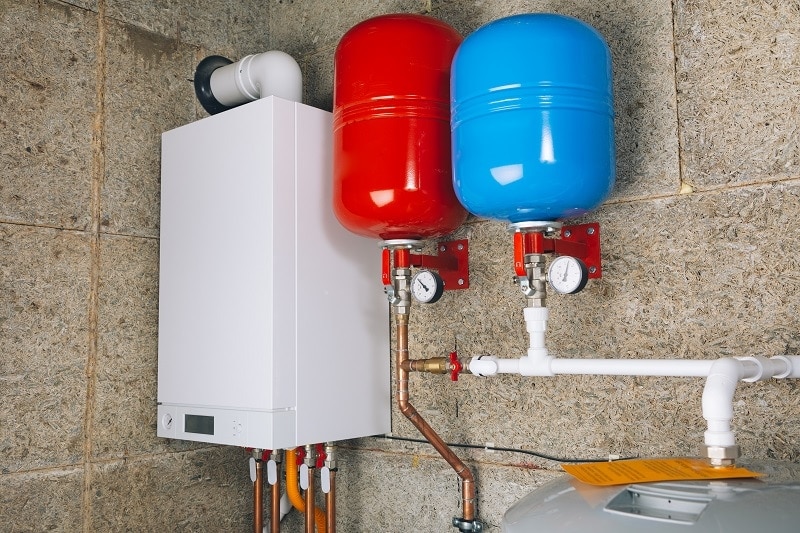
Heat pumps are some of the most popular options for heating your home—and your water. They are a newer option on the market, as they are not nearly as old as furnaces. You can use a heat pump as a water heater. They come as both stand-alone units and in combination systems that also heat the indoors.
While they may seem complicated, the science behind these systems is actually pretty straightforward. In this article, we’ll take a complete look at how this heat pump works.
How Does it Work?
Heat pumps do not make heat directly. Instead, they simply move heat from one place to another. They are very efficient at doing this. In fact, they can move heat from colder areas into warmer areas. Therefore, they are extremely energy-efficient and a great option in warmer climates.
In many ways, heat pumps work like a fridge—but backward. It pulls heat from the surrounding air and puts it into the water. Even when the outside air is cooler than the water, it still works efficiently to heat up the water using the surrounding air.
However, they do only work in some areas. For the most part, they need to stay between 40 and 90 degrees at all times. Otherwise, they do not work well. They also need a decent amount of space around them so that they have access to air to draw heat from.
Generally, these heat pumps will cool the air they are in somewhat. However, this is not significant. You cannot use them to cool a space. Placing them in a warmer room can help them be more efficient, such as next to a furnace.
Geothermal heat pumps are also quite common. These pumps draw heat from the ground during the winter when it is colder. Therefore, they can effectively heat water at all times of the year and are not solely reliant on the surrounding air temperature.
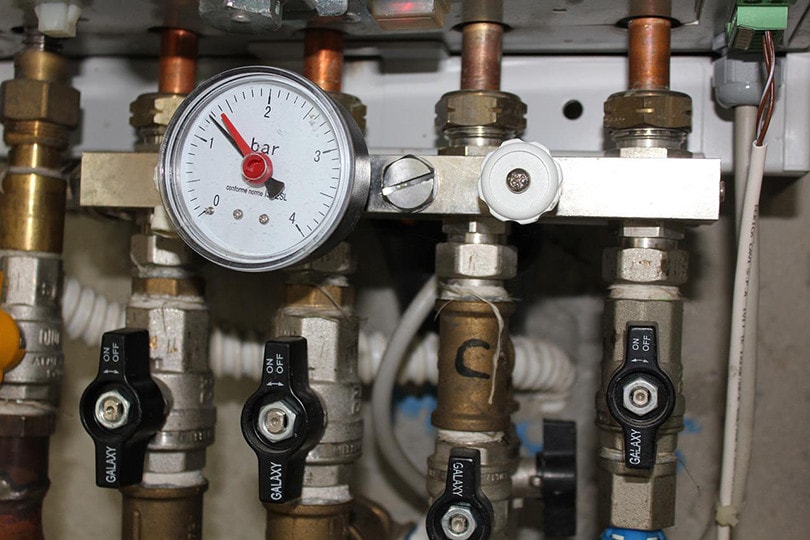
Where are Heat Pump Water Heaters Used?
Usually, you can only utilize heat pump water heaters in warmer climates. Because they use the surrounding air to heat the water, they need heat in the surrounding air and they do not work well in colder areas.
The American South is one of the most common areas for these water heaters, as it does not get extremely cold for very long.
These pumps work better the warmer it is, but they can work in under 30-degree temperatures for a short amount of time. They just can’t work much lower than that very efficiently. If it stays below freezing for some time, they are usually much less efficient than a furnace or other water heater.
Of course, these pumps are installed inside. Therefore, it doesn’t necessarily matter how cold it gets outside. It is the temperature inside that matters.
Advantages of Heat Pump Water Heaters
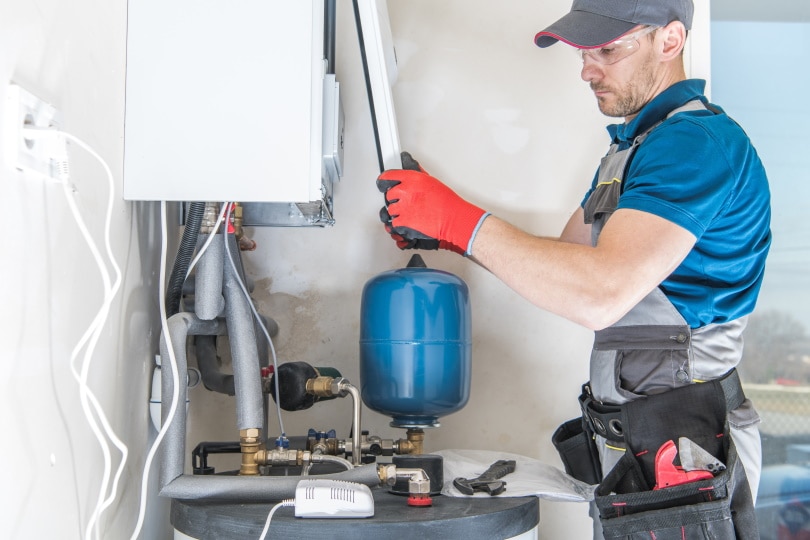
These pumps are extremely efficient. They do not make their own heat, so they have to use less energy than a furnace. In this way, they are extremely energy efficient. The heat comes from the surrounding air—not actually the pump itself.
In some cases, they can save you serious amounts of money on your energy bills each year. Plus, they are also long-lasting, so you don’t have to worry about spending money to replace them regularly.
Because heat pumps are more efficient, they are also more environmentally friendly. They do not generate heat and are not powered by gas so they do not have the risk of gas leaks. Plus, the unit does not get too hot, so it is safer for families.
There are significant cost savings advantages, as well. These pumps use less energy than a traditional furnace. Therefore, they are a lot cheaper to power. You may save hundreds of dollars on energy each year by switching to one of these pumps.
Disadvantages of Heat Pump Water Heaters
Heat pump water heaters are more expensive to purchase upfront. They can cost twice as much as a traditional water heater. In fact, they can easily cost thousands of dollars by themselves. Plus, you have to pay to get them installed, which also isn’t cheap.
Therefore, while they may save you money in the long run, they can be expensive upfront.
Furthermore, heat pumps work best in warmer climates. In the cold, they can be less efficient. Because there is less heat in the air, heat pumps will have to use more energy to draw in the heat that is there. In these cases, a furnace may make more sense.
In colder areas, hybrid models may be necessary if you really want a heat pump. However, in very cold areas, it may be best to get a furnace.
Therefore, these heaters are very geographically specific. They cannot be used everywhere. You’ll need to ask your local professionals if one makes sense for the area.
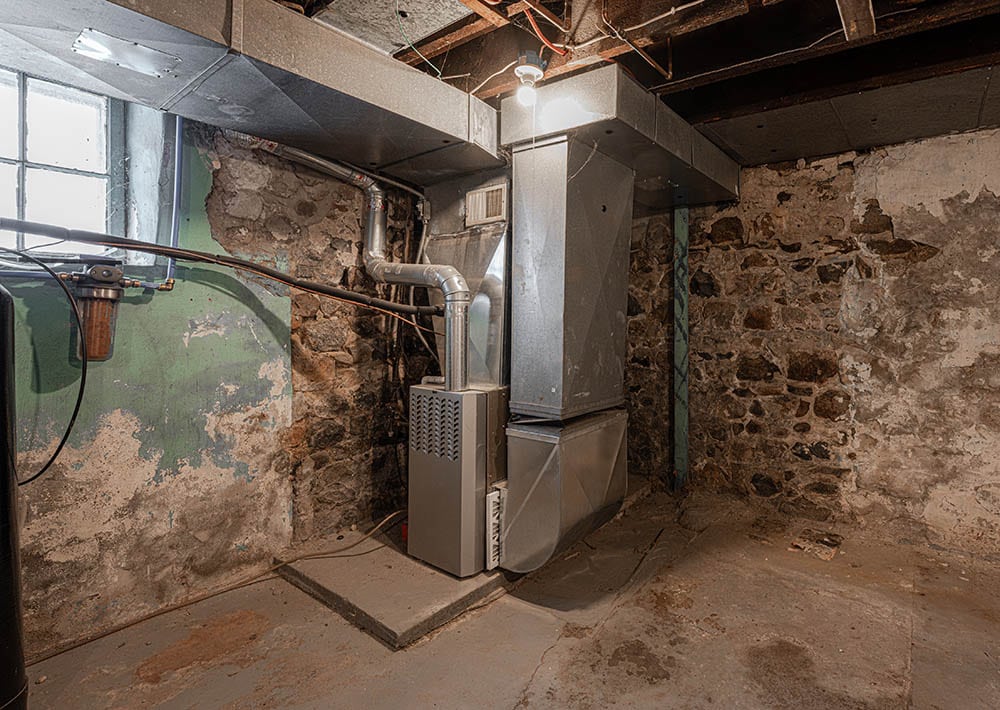
Alternatives to Heat Pump Water Heaters
There are many alternatives to heat pump water heaters. Over the years, many different models have been designed and sold and you can find something for just about every situation.
One of the most popular options is a tankless water heater. They are a great choice for those that want energy efficiency on a budget. They are usually not as expensive as a heat pump water heater, though they can reach a similar efficiency level in some situations.
One reason these pumps are so efficient is that they do not store heated water. Instead, they only heat water as necessary. Therefore, they aren’t using energy to keep water hot over hours between uses. The water is heated as it is being used.
Furthermore, because there is no tank, these heaters take up very little room. They are a great option for those who don’t need a lot of hot water (since they do have a production bottleneck).
Frequently Asked Questions
Is a Heat Pump Water Heater Worth It?
Heat pump water heaters can cost thousands of dollars upfront. However, they can save you hundreds annually on energy bills. Plus, they also work in a variety of conditions and are safer, as they cannot leak gas. Therefore, many people consider the extra cost worth it.
In many cases, it will take you years to get your costs back, but these systems do last for decades, so they will save you money eventually.
Of course, it often only makes sense to get a heat pump water heater if you are in a warmer climate. In colder weather, they are not always very efficient or worth it. Therefore, you do need to keep your area in mind when getting one of these heaters.
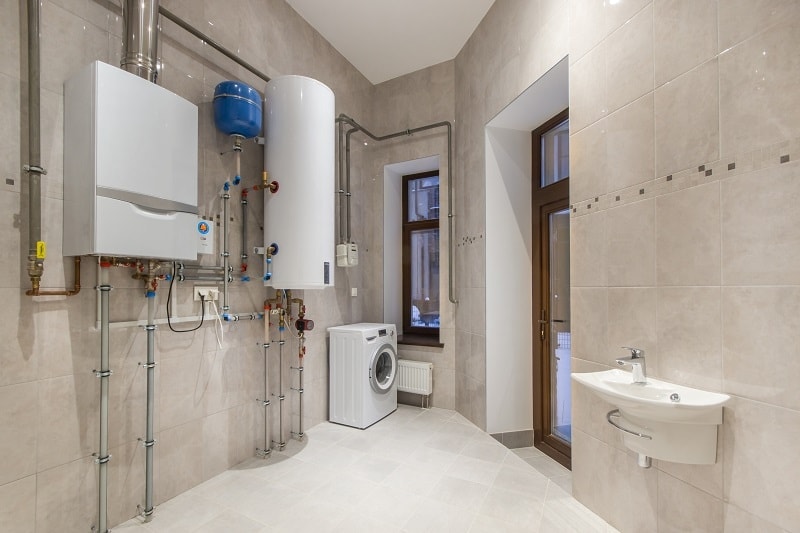
Will a Heat Pump Water Heater Work in a Cold Garage?
It depends on the exact temperature. Heat pumps do not work very well in temperatures under 30-degrees. However, they still can work. It will just take them more energy to transfer the heat from the surrounding air into the water since there is less heat in the surrounding air.
These systems are extremely efficient. Therefore, it can be much colder outside than the water inside them, and they can still heat it up. They work well even in cold climates.
Therefore, while these systems can work in many different situations, they operate best in spaces that are above 40 degrees. If it drops below that for a time, it won’t completely stop working. You just may not see the energy-saving impacts.
How Much More Efficient is a Heat Pump Water Heater?
Because these heaters aren’t actually creating their own heat, they are extremely efficient. They can take very little energy and turn it into a lot of heat by sucking heat from the air. However, they are very dependent on the external temperature. They need heat in the air to draw from, after all.
If you are in a warm area, these systems are quite efficient. They can be seven times more efficient than a gas furnace, for instance. They are also much more efficient than your average electric water heater.
It does depend on the climate, though. In some areas, these pumps will not be efficient in the least. They work best in areas that stay warm for much of the year.
Final Thoughts
Heat pump water heaters do not create their own heat to heat the water. Instead, they transfer heat from the surrounding air into the water. They are very efficient at doing this, which makes them able to heat up water even in the cold.
However, they do work best in hotter areas. They are usually not recommended in the northern half of the United States, as it stays cold too long for them to be very efficient. They can work in colder areas, but they lose a lot of their efficiency.
The warmer it is outside, the less energy they use to heat the water.
Therefore, you should speak with a professional about whether it makes sense to have one of these systems in your house.
- Related Read: What is a Heat Pump Dryer? How Does it Work?
Featured Image Credit: nikkytok, shutterstock
Contents
